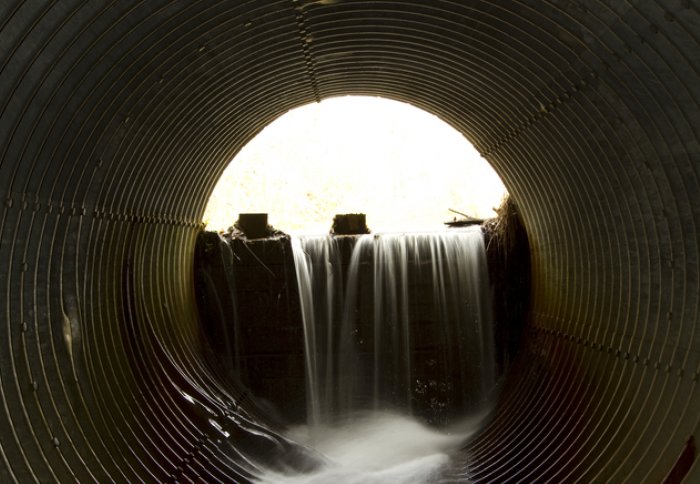

Improving ageing Victorian water systems so that they can meet the UK’s growing needs will be the focus of a new partnership
Improving ageing Victorian water systems so that they can meet the UK’s growing needs will be the focus of a new partnership, announced today.
Imperial College London and the telecommunication company NEC Corporation are establishing a Smart Water Systems Lab at the College, which will develop new technologies to monitor the UK’s water infrastructure and optimise how the resource is managed - bringing it into the digital era.
In a five-year collaboration, researchers at the Lab will develop smart sensors and data analysis tools engineered to monitor and control water flow and pressure in pipes. This system will also extensively use NEC’s Cloud Services and crowd sourcing (e.g. Twitter) to enhance its decision making.

Sensor technology developed by researchers could minimize water utility leakages
Scientists Dr Ivan Stoianov and Dr Julie McCann at the Smart Water Systems Lab are developing sensors, as small as matchboxes, which contain computer hardware that processes information to direct changes in the water pipes to optimise water pressure and thereby minimise leaks.
The research will draw on the expertise from across the College including researchers from the Departments of Civil and Environmental Engineering, Computing, Bioengineering, Electrical and Electronic Engineering, Chemical Engineering and Imperial’s Business School.
Dr Ivan Stoianov, Project Principal Investigator from the Department of Civil and Environmental Engineering at Imperial College London said: “Over 25 per cent of water in the UK is lost due to leakage. The inefficiency in the UK’s water network was highlighted this summer, when rainfall in the UK was amongst the highest on record and flooding was occurring at the same time as hosepipe bans had been implemented in many regions. This was recognised as ‘the wettest drought’. We hope that the outcome of our research will successfully address some of the current problems we face with our water supply to help put the country’s infrastructure on a more sustainable footing.”
Dr Julie McCann, Principal Investigator from the Department of Computing at Imperial College London, added: “By exploiting smart sensing and control technologies and utilising Cloud systems, we predict we will make water utilities more rapidly adapt their operations to meet challenges of water systemsmanagement. This is a step change in water management and also the design of complex cyber-physical systems.”
Lord Stephen Green, Minister of State for Trade and Investment, said: “Water is a precious and increasingly scarce resource in many parts of the world. The development of smart, energy efficient water and wastewater treatment systems is an essential response to ensuring water security, whilst minimising the impact on the environment and contributing to carbon reduction targets.”
“This new partnership will help to ensure that the UK continues to engage in the development of smart technologies in collaboration with like-minded international partners. I wish all success to the new partnership and look forward to seeing the results of this joint research.”
Professor David Gann, Deputy Principal for Research and Business Engagement, Imperial College Business School, said: “Global challenges such as climate change mean that cities need to be more responsive, efficient and sustainable with their water resources. I welcome the establishment of the Smart Water Systems Lab at Imperial, which will trigger much needed innovation in the sector. I’m excited by the idea that the technologies and processes that we develop could also be exported to other countries to improve the way precious and finitewater resources are managed.”
Imperial already has strong research capabilities in developing technologies for making cities more sustainable such as the Intel Sustainable Connected Cities Institute, Cisco Future Cities initiative and Digital City Exchange project. These initiatives aim to explore ways to digitally link utilities and services within a city to improve their management and reduce waste.
By Cher Thornhill
Article text (excluding photos or graphics) available under an Attribution-NonCommercial-ShareAlike Creative Commons license.
Photos and graphics subject to third party copyright used with permission or © Imperial College London.
Reporter
Colin Smith
Communications and Public Affairs

Contact details
Email: press.office@imperial.ac.uk
Show all stories by this author




Leave a comment
Your comment may be published, displaying your name as you provide it, unless you request otherwise. Your contact details will never be published.